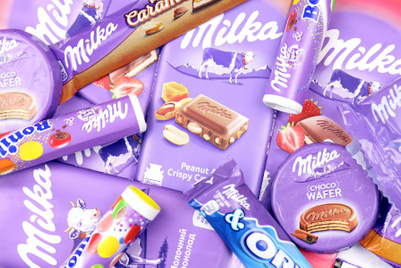
It seems the recent backlash against Coca-Cola's AI-generated holiday advertisement hasn't just sparked debate, it's drawn battle lines. The industry’s response has splintered into predictable camps: The techno-optimists shrugging "why not?," as the doomsayers prophesy creativity's death, and the pragmatists in the middle point out that the real crime isn't that AI made the ad—it’s that it’s rather boring and failed to push any boundaries at all, only buttons.
As an industry, we’ve very much been at this juncture before. Each time we approach new technology, it’s as though it’s the very unprecedented threat to the craft of advertising itself. Now with the advent of generative AI, our romance with traditional methods— the idealised creative process, the ‘eureka’ moments, and the notions of storytelling—aren’t just being challenged, they’re being fundamentally redefined.
The patterns are telling. When television disrupted print advertising in the 1950s, veterans questioned the very possibility of narrative conveyance in 30 seconds. That ‘threat’ gave birth to some of our most iconic campaigns. Then, the digital revolution faced similar skepticism. "Banner ads? Pop-ups? This isn't real advertising!" Yet digital has not only survived and become the status quo, but truly thrived to create entirely new categories of creative expression. Then, social media faced the same resistance. "Twitter? Instagram? Real brands don't talk in hashtags!" Now, social media strategists are among our most vital industry positions.
Each of these transitions sparked panic about job displacement and the "death of creativity." Each time, our industry not only survived but emerged stronger, with new roles, new specialties, and new forms of creative expression. Yet somehow, AI has become our reckoning? This feels less like a rational response to technological evolution and more like a culmination of change fatigue.
The cognitive dissonance is striking. We're an industry that embraces AI in pitch decks but recoils when it appears in the actual work. We'll optimise media spend with algorithms but draw a line at the ideation process. The same technology has been silently powering our industry for years: In marketing automation, supply chain optimisation, and even the CGI that wins our awards. Yet when it steps into the creative spotlight, we treat it like an uninvited guest at a very exclusive party.
Here's an uncomfortable realisation: Much of what we're trying to preserve needs reinvention. For every groundbreaking campaign, we produce countless templated pieces. Our creative meetings often recycle strategies, repackaging familiar ideas while calling them novel. We demand originality while imposing impossible deadlines and exponential, tactical, and revenue-necessitating content demands. In an environment of shrinking timelines and ever-changing scope, where is the space for genuine innovation?
The elephant in the room has become impossible to ignore. AI isn't just a topic of discussion anymore—it's an unavoidable question mark hovering over every creative decision. We've analysed it endlessly, yet somehow we're still stuck in the same circular conversation. Our relationship with AI has become almost comical in its contradiction: We critique it publicly while quietly integrating it into every corner of our operations.
Also, this technology isn't waiting for our permission. While we're hosting yet another panel discussion about AI ethics, other industries are pioneering its integration. And they’re not just experimenting—they're revolutionising their fields, grappling with complexities that make our AI anxieties seem quaint (not to invalidate anyone’s feelings). The thing is, we're so caught up in hypothetical debates about what AI might mean that we're missing what it already does.
Consider the paradox: We pride ourselves on pushing boundaries, on being at the forefront of culture and technology. We sell disruption to clients as the path to growth. We celebrate innovation in every other field. Yet when it comes to our own evolution, we move with extraordinary caution. This isn't just ironic, it's limiting our future relevance. The current standoff is becoming untenable. Consumers block our ads while simultaneously criticising cost-efficient production methods. They demand innovation but reject the tools that could enable it. Meanwhile, we’re clinging to outdated processes, watching as both quality and margins deteriorate.
Naysayers may cry foul about the sanctity of human creativity, but they're missing a crucial lens: Like it or not, our industry has been one of the driving forces behind Gen AI's evolution. From pioneering synthetic content creation with the likes of DALL E and Midjourney, to revolutionising dynamic personalisation, we too, have pushed the boundaries that have shaped today's artificial intelligence landscape. Which means this isn't just our cross to bear, it's also our medal to wear.
The path forward isn't about choosing between human creativity and AI; it's about proudly owning the synthesis we've already created. We need to stop treating AI like our industry's guilty pleasure and start celebrating it as one of our greatest innovations. Only then can we address the glaring irony. Consumers happily use AI-powered tools every day, from Netflix recommendations to Spotify playlists, from Gmail's smart compose to Instagram's filters, yet somehow now draw an arbitrary line at generative AI in ads. It's time to bridge this disconnect and help them understand that AI isn't just part of modern content creation, it's officially part of modern life, period—and that includes advertising.
Yes, not all Gen AI experimentation is created equal. There's a chasm between lazily outsourcing creativity to algorithms and strategically deploying AI to charge human potential. One deflects responsibility, churning out derivative work that echoes through the void. The other eliminates the mind-numbing grunt work that keeps creatives chained to keyboards instead of chasing breakthrough ideas. The difference? Intent, experimentation, and most crucially—human vision. When we thoughtfully automate the endless cycles of iteration and prototyping, we aren't dimming creativity, we're unleashing it from the shackles of mundane tasks.
Yes, we'll stumble, and yes, some experiments will fall flat and lose their fizz (pun intended). But here's the reality: In our rush to condemn every brand that dares to experiment with AI, we're not protecting creativity, we're suffocating it, and, creating a climate where the fear of being lambasted for trying something new outweighs the potential for its discovery. In an industry already burdened under impossible deadlines and endless deliverables, this paranoia is the last thing we need. What if AI is the scaffold that lets human creativity soar higher, dream wilder, and push boundaries we never thought possible? This isn't about ceding the ground to machines, it's about reclaiming space for what humans do phenomenally well: Imagining the impossible, failing spectacularly, learning fast, and having the audacity to try again.
Which is why, our greatest risk isn't AI at all, it's stagnation. In trying to preserve what makes us special, we might just be making ourselves obsolete. The question should no longer be whether AI belongs in advertising, but how quickly we can harness it to push creative boundaries while maintaining the human insights that drive meaningful connections.
Because if history has taught us anything, it's that progress belongs to the bold. The future of advertising won't be shaped by those still debating AI's role, it'll be defined by those already pushing its limits. We can keep clutching our pearls about the death of creativity, or we can get on with the business of creating tomorrow's. The tools are here. The talent is ready. The only question is: Are we?


.jpg&h=334&w=500&q=100&v=20250320&c=1)


.png&h=334&w=500&q=100&v=20250320&c=1)


.png&h=334&w=500&q=100&v=20250320&c=1)







.jpg&h=268&w=401&q=100&v=20250320&c=1)
.png&h=268&w=401&q=100&v=20250320&c=1)

